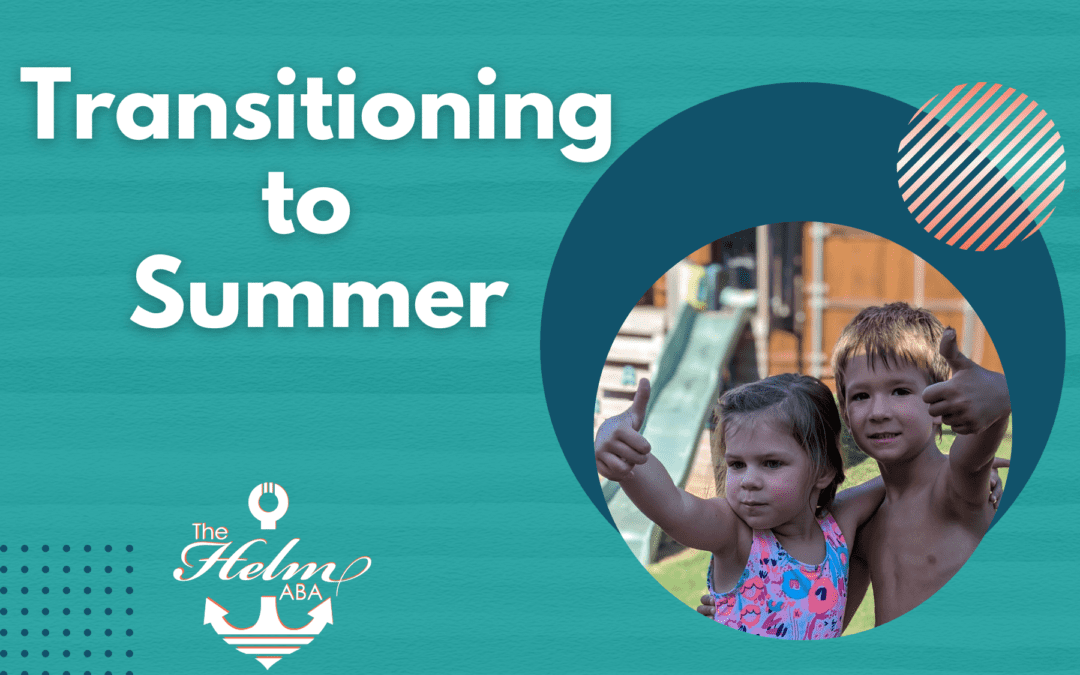As the school year draws to a close, parents of children with autism face unique challenges in transitioning from structured routines to the more relaxed atmosphere of summer break. This transition period can be both exciting and overwhelming, but with some careful planning and support, it can also be an opportunity for growth and enjoyment for the whole family.
Recognize the Importance of Routine:
For many children with autism, routines provide a sense of stability and security. As the school year ends, it’s crucial to establish new routines for the summer months to help ease the transition. To help, try working with your child to create a visual schedule or daily routine chart that outlines activities and expectations for each day. Consistency and predictability can help reduce anxiety and promote a sense of calm
Plan Meaningful Activities:
Summer break offers a chance for children to explore new interests and engage in enjoyable activities. However, it’s essential to choose activities that are both stimulating and suitable for your child’s needs. If they are able, consider enrolling your child in a summer camp or recreational program specifically designed for children with autism. These programs often provide structured activities and opportunities for socialization in a supportive environment. In addition, we recommend that you continue ABA therapy throughout the summer. While the school routine is being disrupted, keeping therapy consistent can go a long way.
Address Sensory Needs: 
Changes in routine and environment during the summer months can sometimes exacerbate sensory sensitivities in children with autism. Be mindful of your child’s sensory needs and incorporate activities that provide sensory input and support regulation. Create sensory-friendly spaces in your home where your child can retreat if they become overwhelmed. Offer a variety of sensory experiences, such as water play, outdoor exploration, or sensory bins, to help your child stay engaged and regulated.
Foster Social Connections:
Maintaining social connections during the summer break is essential for children with autism, who may struggle with social skills and peer interactions. Although scheduling during the summer can be a challenge, arranging playdates with classmates or friends from therapy will ensure your child has opportunities for socialization outside of school.
Seek Support:
Remember that you’re not alone in navigating the challenges of the summer transition. Reach out to other parents of children with autism for support, advice, and shared experiences.
Transitioning from the end of the school year to summer break can be a significant adjustment for the whole family. By prioritizing routines, planning meaningful activities, addressing sensory needs, fostering social connections, and seeking support, parents can help ensure a smooth and enjoyable transition for their child. With patience, flexibility, and understanding, the summer months can be a time of growth, exploration, and fun for the entire family.

